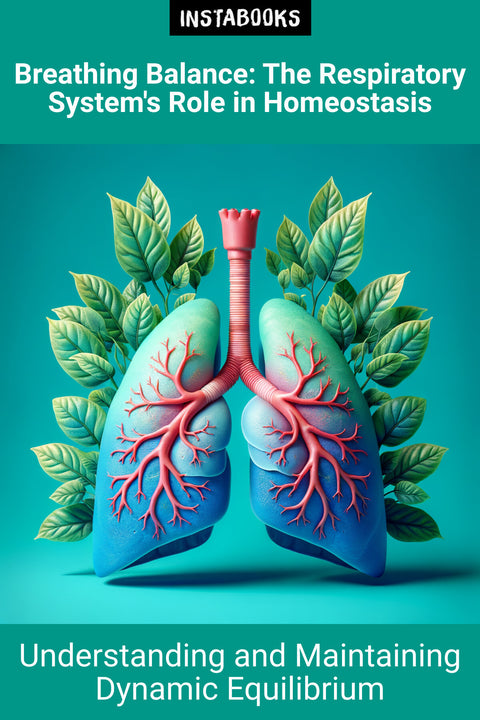
Breathing Balance: The Respiratory System's Role in Homeostasis
Understanding and Maintaining Dynamic Equilibrium
Included:
✓ 200+ Page AI-Generated Book
✓ ePub eBook File — read on Kindle & Apple Books
✓ PDF Print File (Easy Printing)
✓ Word DOCX File (Easy Editing)
✓ Hi-Res Print-Ready Book Cover (No Logo Watermark)
✓ Full Commercial Use Rights — keep 100% of royalties
✓ Publish under your own Author Name
✓ Sell on Amazon KDP, IngramSpark, Lulu, Blurb & Gumroad to millions of readers worldwide
$149.00
$299.00
Title
Discover the intricate dance of gases and the mechanisms that keep our internal environment stable, even when the world around us changes. Explore how the lungs, blood, and cellular processes converge to create a symphony of life-sustaining checks and balances. This book is your guide to the wonders of physiological balance and the respiratory system's vital role in maintaining it.
- The Anatomy of the Respiratory System
- The Process of Gas Exchange
- Regulation of Breathing Patterns
2. Homeostasis: The Keystone of Stability
- Defining Homeostasis
- Components and Control Systems
- The Role of Feedback Loops
3. The Lungs at Work
- The Function of Alveoli
- Oxygen Transport and Delivery
- The Impact of External Factors
4. Respiratory System and Acid-Base Balance
- Blood pH and Respiratory Function
- Buffers in Blood: Managing Extremes
- The Body's Response to Acidosis and Alkalosis
5. Respiratory Diseases and Homeostasis
- Common Disruptions in Respiratory Health
- Chronic Conditions and Systemic Effects
- Restoring Balance: Treatments and Therapies
6. Breathing Techniques and Systematic Regulation
- The Art of Controlled Breathing
- Pranayama: Ancient Wisdom, Modern Science
- Improving Homeostasis Through Practice
7. The Impact of Lifestyle on Respiratory Balance
- Diet, Exercise, and Lung Capacity
- Pollution and Respiratory Responses
- Holistic Approaches to Respiratory Health
8. Hormonal Influence on Respiratory Homeostasis
- Endocrine System Interactions
- Stress Hormones and Breathing
- Hormonal Therapies and Respiratory Balance
9. Advanced Theories in Respiratory Physiology
- The Bohr Effect and Oxygen Affinity
- Ventilation-Perfusion Coupling
- Hypoxic Drive and Altitude Adaptation
10. Pedagogical Approaches to Respiratory Education
- Teaching the Concept of Homeostasis
- Interactive Models and Simulations
- Curriculum Development for Physiology
11. Technological Advancements in Respiratory Care
- Innovations in Pulmonary Medicine
- Wearable Devices and Monitoring
- The Future of Respiratory Therapy
12. Case Studies and Clinical Perspectives
- Analyzing Respiratory Disorders
- Patient Management Strategies
- Research Findings and Implications
Table of Contents
1. The Basics of Breathing- The Anatomy of the Respiratory System
- The Process of Gas Exchange
- Regulation of Breathing Patterns
2. Homeostasis: The Keystone of Stability
- Defining Homeostasis
- Components and Control Systems
- The Role of Feedback Loops
3. The Lungs at Work
- The Function of Alveoli
- Oxygen Transport and Delivery
- The Impact of External Factors
4. Respiratory System and Acid-Base Balance
- Blood pH and Respiratory Function
- Buffers in Blood: Managing Extremes
- The Body's Response to Acidosis and Alkalosis
5. Respiratory Diseases and Homeostasis
- Common Disruptions in Respiratory Health
- Chronic Conditions and Systemic Effects
- Restoring Balance: Treatments and Therapies
6. Breathing Techniques and Systematic Regulation
- The Art of Controlled Breathing
- Pranayama: Ancient Wisdom, Modern Science
- Improving Homeostasis Through Practice
7. The Impact of Lifestyle on Respiratory Balance
- Diet, Exercise, and Lung Capacity
- Pollution and Respiratory Responses
- Holistic Approaches to Respiratory Health
8. Hormonal Influence on Respiratory Homeostasis
- Endocrine System Interactions
- Stress Hormones and Breathing
- Hormonal Therapies and Respiratory Balance
9. Advanced Theories in Respiratory Physiology
- The Bohr Effect and Oxygen Affinity
- Ventilation-Perfusion Coupling
- Hypoxic Drive and Altitude Adaptation
10. Pedagogical Approaches to Respiratory Education
- Teaching the Concept of Homeostasis
- Interactive Models and Simulations
- Curriculum Development for Physiology
11. Technological Advancements in Respiratory Care
- Innovations in Pulmonary Medicine
- Wearable Devices and Monitoring
- The Future of Respiratory Therapy
12. Case Studies and Clinical Perspectives
- Analyzing Respiratory Disorders
- Patient Management Strategies
- Research Findings and Implications
